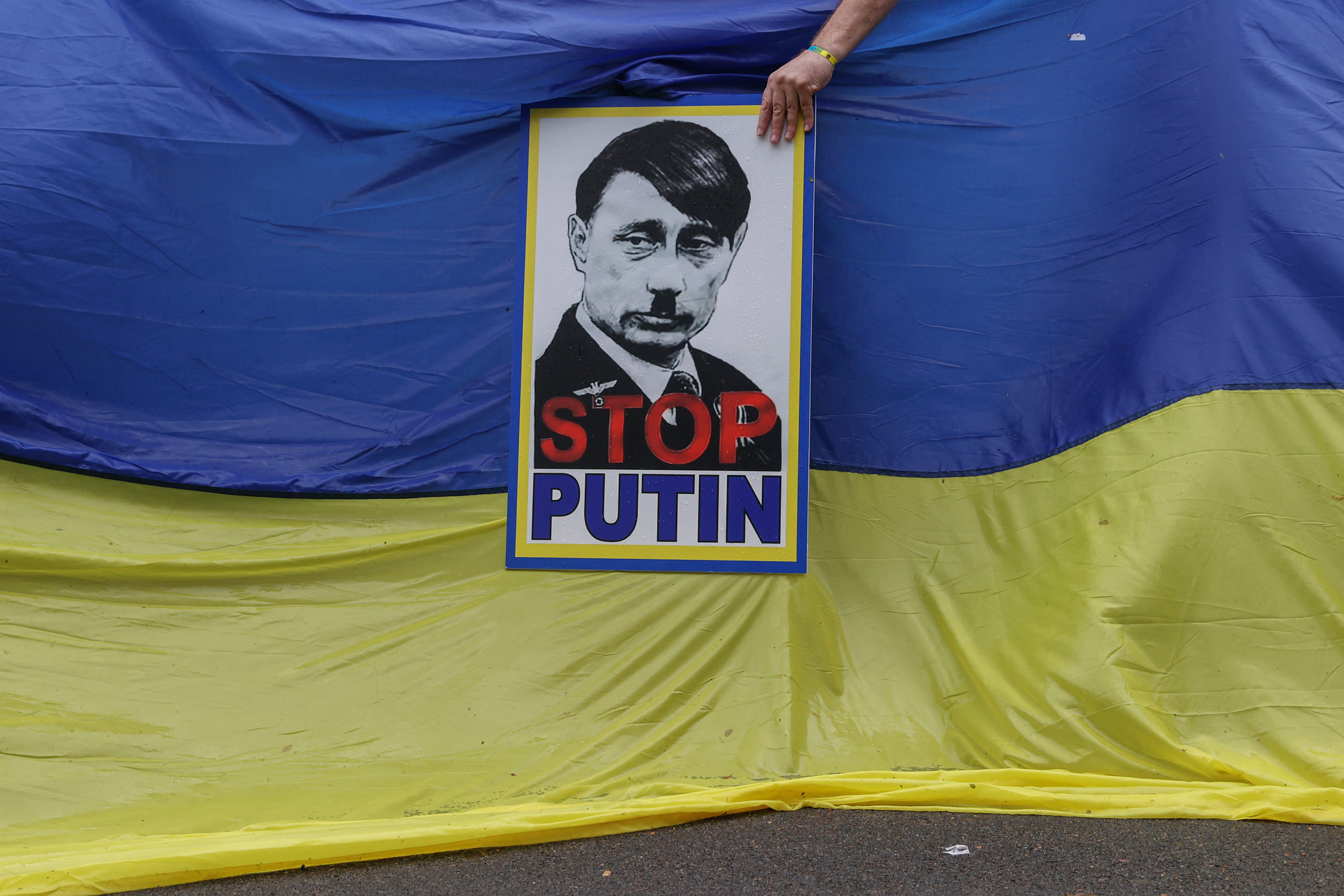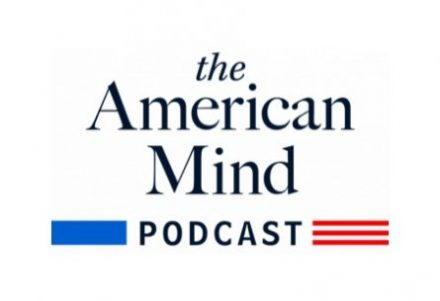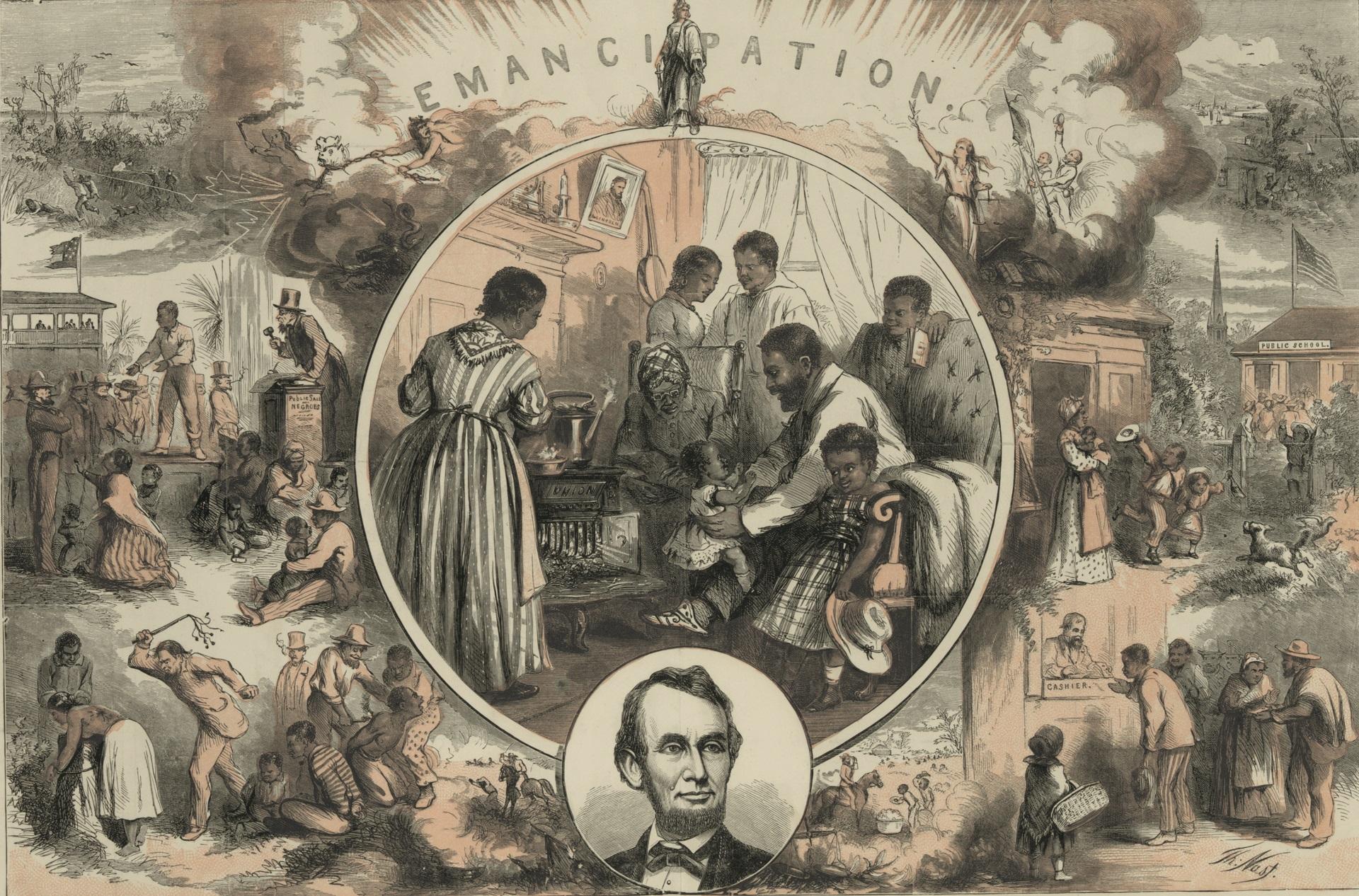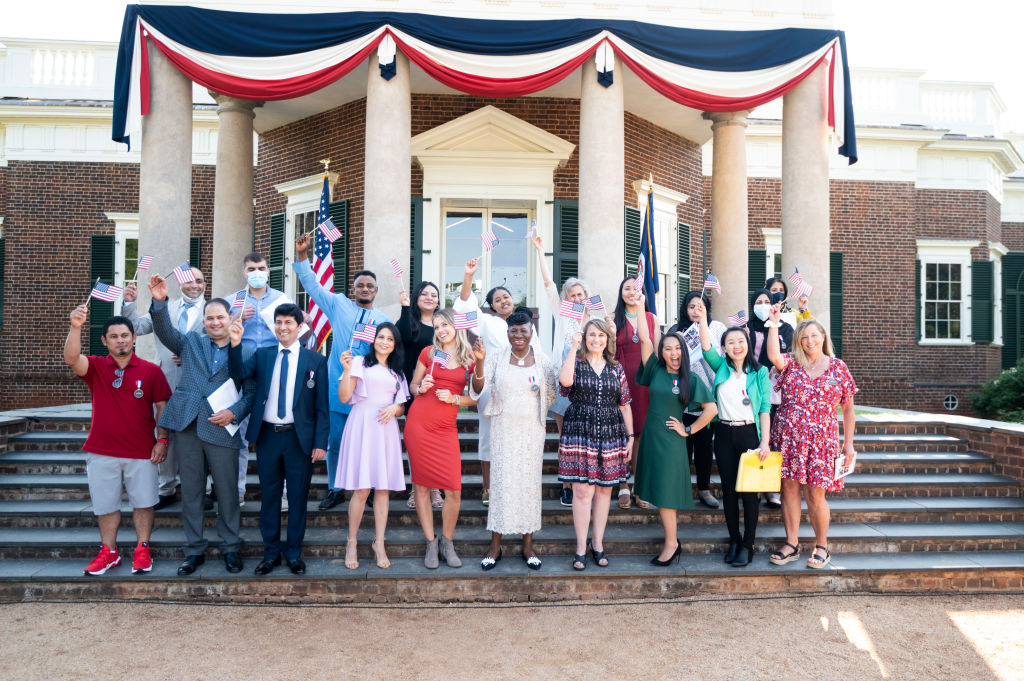New artefacts overthrow old impostures.
Everyone is Hitler

There is no moral equivalence between Ukraine and Russia, but neither country is Nazi Germany.
According to Vladimir Putin, there are Nazis lurking in the Ukrainian government. This, says Putin, is why Russia must invade: to “strive for the demilitarization and denazification of Ukraine.” It is an outlandish claim, intended to justify Putin’s raw aggression. Anyone who attempts to frustrate his designs is, in Putin’s twisted account, a Nazi.
Watching this effrontery from Europe and America, observers are astonished that a rapacious autocrat would lie openly while enacting territorial conquest. Westerners think Putin is acting just like—guess who?—Hitler. And so images of the Russian president with the trademark moustache have been all over Twitter. So has the hashtag #putinhilter. Ukrainian President Volodymyr Zelensky encouraged the comparison when a Russian strike hit the Babyn Yar Holocaust memorial in Kyiv: “what is the point of saying «never again» for 80 years, if the world stays silent when a bomb drops on the same site of Babyn Yar? At least 5 killed. History repeating…”
Obviously Putin’s invasion is an outrage, and obviously Ukraine’s embattled soldiers inspire admiration. But it is alarming that, during the most precarious and complex geopolitical crisis of my lifetime, we are stuck debating which country is more like Nazi Germany. The reference is not particularly apt on either side of the ledger. Zelensky, as many have pointed out, is descended from a Holocaust survivor and related to several other victims. In Russia, though Jews have faced a grueling history of disenfranchisement and death, and though Putin has displayed all manner of barbarism in other arenas, he has actually been relatively friendly toward the Jewish population, among whom he enjoys some support.
There is no moral equivalency here between Ukraine and Russia, but neither country seems remotely interested in establishing a global Aryan hegemony. They have objectives of their own, quite unrelated to whatever simplistic analytical template we want to force upon them. Putin is grasping at greater power in Europe—but is Hitler the only other world leader who ever did that? Is there no way to be evil except to be a “Nazi”? Is no one to be considered brave or good except by tortured analogy to some sort of neo-Gaullist resistance?
When a Russian autocrat misleads his people, silences dissent, does violence to political opponents, and annexes neighboring countries, surely the most ready comparison is with Soviet dictators, not the Third Reich. Or else, if you prefer: when naïve Western powers careen unwillingly but inexorably toward a catastrophic bloodletting, surely the first World War is a closer parallel than the second. Even Pericles’ funeral oration from the Peloponnesian War could teach us a lot about America’s current position. History could furnish any number of exempla more apposite and informative for this moment than the one we seem to have chosen.
But pundits are not indulging in extravagant invocations of Stalin or Franz Ferdinand. Such references would require Westerners—at whom much of this agitprop is aimed—to know the details of more than one historical event. As it is, our leaders and literati have spent years of dogged effort pretending Hitler was the only villain who ever lived, assimilating all enemies foreign and domestic to this one Great Satan. Donald Trump, George W. Bush, Barry Goldwater, and Ronald Reagan were all called Hitler by their enemies at one point or another. Since the Trump presidency, this practice has been carried to a fever pitch of obsession. After decades of mapping every disagreement, however trivial or irrelevant, onto the same tired framework, of course our chattering classes are reaching for their favorite rhetorical flourish again now.
It is not surprising that Putin also assimilates everything to World War II. Ex-KGB agent that he is, he likely remembers the old Stalinist tactic of characterizing all ideological opponents as “Fascists.” “Social-Democracy is objectively the moderate wing of fascism,” wrote Stalin in 1924. This strategy was popularized in the West by Theodor Adorno’s “F-scale,” which plotted everyone with even mildly conservative attitudes onto a sliding spectrum of Fascism. It is a time-honored Soviet move to peg all enemies with the most emotionally potent label possible—no matter how badly the shoe fits.
So it is that we find ourselves in an extremely serious conflict where everyone involved is playing a very unserious rhetorical game. Every side is accusing every other of being Nazis, and any disaster or offense is immediately identified with the Holocaust. Besides doing a dishonor to the particular sorrows and agonies of the actual Holocaust, this childish maneuver makes it impossible to see the real situation on the ground through the fog of emotionalism and panic.
If we want a chance in hell of surviving, we in the West had better get over our compulsive need to see World War II redux in every new emergency. That kind of thing might be good enough for the deranged propaganda of an ex-Soviet thug, but it is unbecoming of Americans and unbefitting of a free people. It makes us vulnerable to the crudest kinds of manipulation and unable see what is really happening—not what is happening on social media, or in our fairytale historical imaginations, but here and now, with very real and dire consequences.
The American Mind presents a range of perspectives. Views are writers’ own and do not necessarily represent those of The Claremont Institute.
The American Mind is a publication of the Claremont Institute, a non-profit 501(c)(3) organization, dedicated to restoring the principles of the American Founding to their rightful, preeminent authority in our national life. Interested in supporting our work? Gifts to the Claremont Institute are tax-deductible.
Radical self-definition destroys the self and the nation.
Revisionist Black supremacist history can't grasp our shared equality.
Naturalization is one thing, but feeling naturally American is something else.
Fighting the impulse for national divorce with spousal abuse






